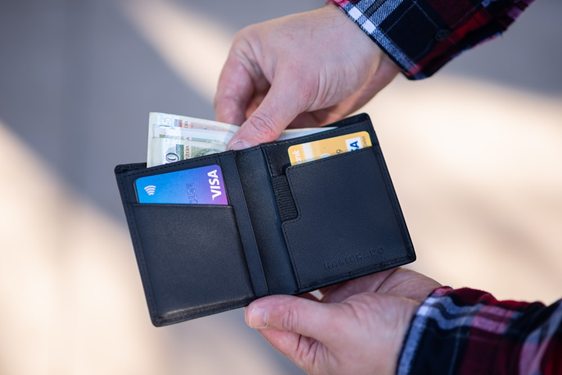Cash has a place in many people’s lives, even now in today’s digital era. In the first place, cash is almost accepted everywhere, including at some tiny establishments that do not accept credit cards. On certain occasions, where cash-only lines can be shorter and faster, it is also a convenient alternative.
But there are limitations to cash. If you are not paying attention, it is straightforward to lose or misplace some money, and it is pretty challenging to track down if it has been lost or stolen from you. Carrying a large or even small amount of cash on your own may be dangerous.
If you solely use cash for all of your transactions, you will have particular distinct hassles, particularly when acquiring cash when you need it. Even though thousands of ATMs are available to withdraw cash, they never seem to be close by when you are in desperate need of one.
In most cases, banks impose ATM withdrawal restrictions that prevent you from withdrawing more than a few hundred dollars from an ATM in a single day. If you want additional funds, you will be required to visit your local bank office, which is frequently much more cumbersome than locating an ATM in the first place. In addition, this is true even if the bank is open, which it will not be on holiday or after business hours.
Cash vs. Credit Card
There’s no reason why you shouldn’t be able to carry both credit cards and cash in your wallet at the same time. Using cash for minor purchases that do not need credit card protection and your credit card for larger purchases is an excellent strategy to earn reward points and save money. But the question is, what is better? Is it cash or credit card?
Advantage of using Credit
Credit cards have a terrible image in today’s society, but the fact is that if used carefully and effectively, your credit card can be a valuable financial tool.
Before you make a big decision on which one to use as your payment method, you should carefully analyze some of the pros and cons of paying with a credit card and cash. Here are some of the most important benefits to consider before adding a bright new card to your wallet:
- Convenience -The most significant advantage of your credit card is its convenience. You can buy now what you need, and it gives you extra time to pay later. You don’t have to be concerned when you need money and how much money you have on hand when you have a credit card inside your wallet. Credit cards can also be a useful payment option for making online purchases, as cash cannot be used to make online transactions. Using a credit card does not endanger your debit card or bank account details.
- Record all of your expenses – A credit card keeps track of any of your transactions. Every month, your credit card sends you a statement detailing where, when, and how much you spent on each purchase done to your card. Lenders also give quick alerts each time you swipe your card, showing the amount of remaining credit as well as the current balance on your card. Furthermore, some credit cards company include year-end statements that summarize your spending for the year, which is helpful for tax purposes and other monitoring purposes.
- Perks and incentives to offer– Most credit cards come with rewards programs of offers and incentives to encourage you to use your card. These can range from cash back to rewards points accumulated each time you swipe your card, which can then be redeemed as air miles or used to pay down your outstanding card balance. Lenders may also provide discounts on purchases made with a credit card, such as airplane tickets, vacations, or major purchases, allowing you to save money.
- You are protected from fraud– Credit cards provide additional security in the form of insurance if the credit card is lost, destroyed, or stolen. You are not liable for any fraud if you tell your card issuer that you have lost your card before any fraudulent transactions are made or if your card information is stolen. Many credit card companies go even farther and will not hold you liable for fraud if you report illegal charges in a timely way.
- Building a good credit history– Using credit to buy purchases and paying them off on time may help you acquire a high credit score from credit rating agencies like Experian, Equifax, and TransUnion. As a result, lenders will be more willing to lend to you and offer you a fair or much lower interest rate. Having an excellent credit score can allow you to save money and improve your financial life.
Bottom Line
For the final note, avoid making rash and unwise purchases with your credit card. Debt is costly. If you have a credit card with a balance accessible in your wallet, resist the urge to spend more because the card has a balance available. Instead, concentrate on utilizing it as a tool to get more value from the money you already have set aside.
When you do decide to use a credit card, be sure you do the math. Determine if the advantage you want is worth the money you’ll have to spend in fees and interest to get it.


Recent Comments